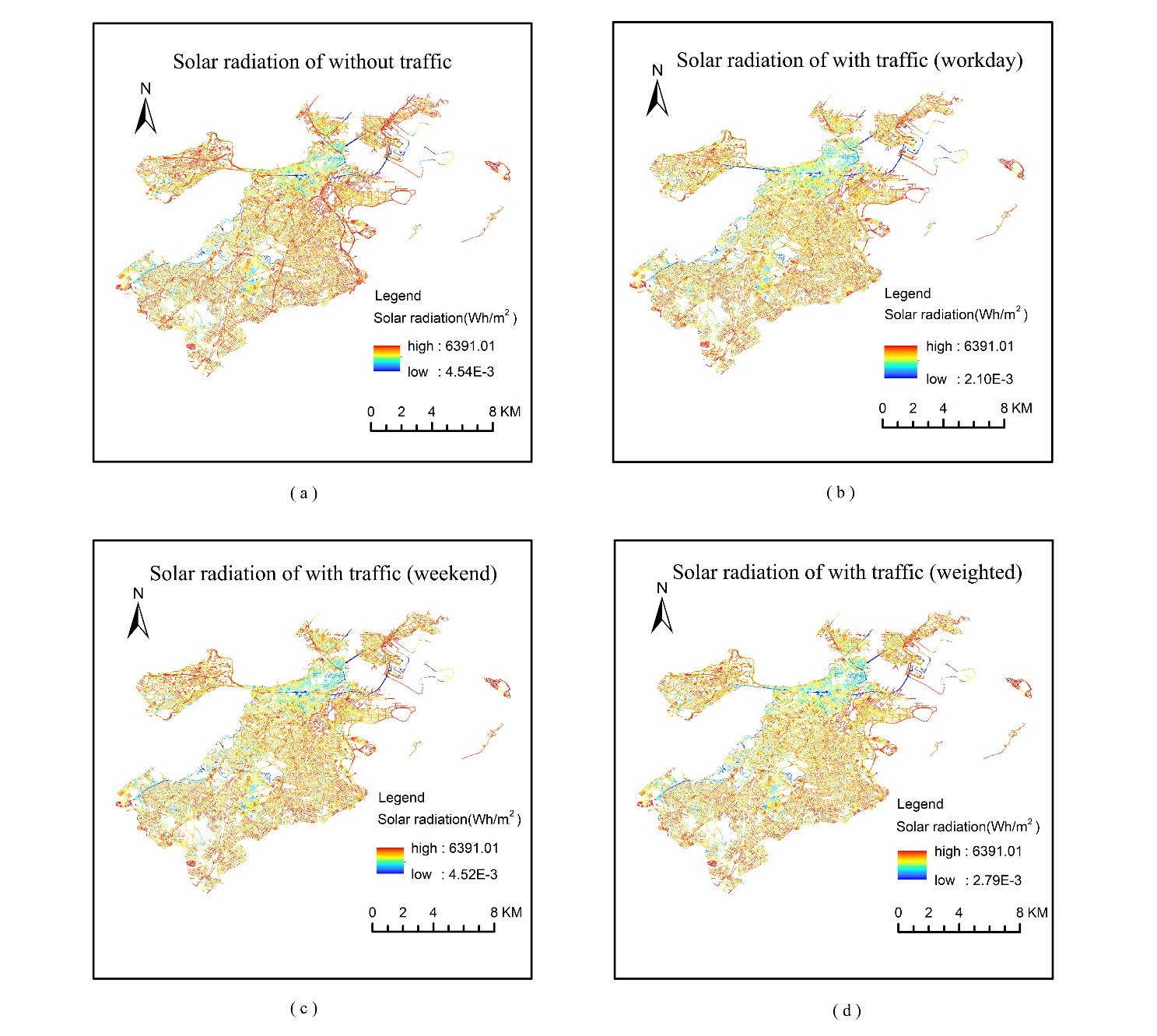Our paper entitled “Towards feasibility of photovoltaic road for urban traffic-solar energy estimation using street view image” has been accepted for publishing in the Journal of Cleaner Production.
Authorship: Ziyu Liu, Anqi Yang, Mengyao Gao, Hong Jiang, Yuhao Kang, Fan Zhang, Teng Fei.
This paper proposes a methodology framework to calculate the solar energy that can be collected by solar panels paved on the road. Estimation of how much energy can be collected help making decision of where these photovoltaic road system should be built. Exemplified by the city of Boston, using street view images and taking light obstacles, traffic conditions, weather conditions and seasonal changes of solar radiation into consideration, the potential of solar energy generated by Boston’s road network is estimated precisely. Our results show that the energy obtained from urban road network can support all private cars in Boston.
Here is the abstract:
A sustainable city relies on renewable energy, which promotes the development of electric vehicles. To support electric vehicles, the concept of charging vehicles while driving has been put forward. Under such circumstances, constructing solar panels on urban roads is an innovative option with great benefits, and the accurate calculation of road photovoltaic power generation is a prerequisite. In this paper, we propose a novel framework for predicting and calculating the solar radiation and electric energy that can be collected from the roads. Google Street View images are collected to measure the sky obstruction of roads which is integrated with the solar radiation model to estimate the irradiation receiving capability. In addition to sky obstruction, we also take the impact of traffic conditions and weather situations into consideration in the calculation. Radiation maps at different times in a year are produced from our work to analyze the roads photovoltaic distribution. In order to test the feasibility of our framework, we take Boston as a case study. Results show that roads in Boston can generate abundant electricity for all future electric vehicles in the city. What’s more, main roads through Boston exhibit better power generation potential, and the effect of the traffic condition is limited. Our calculation framework confirms that utilizing solar panels as road surfaces is a great supplement of city power with the unique ability to charge moving cars.
